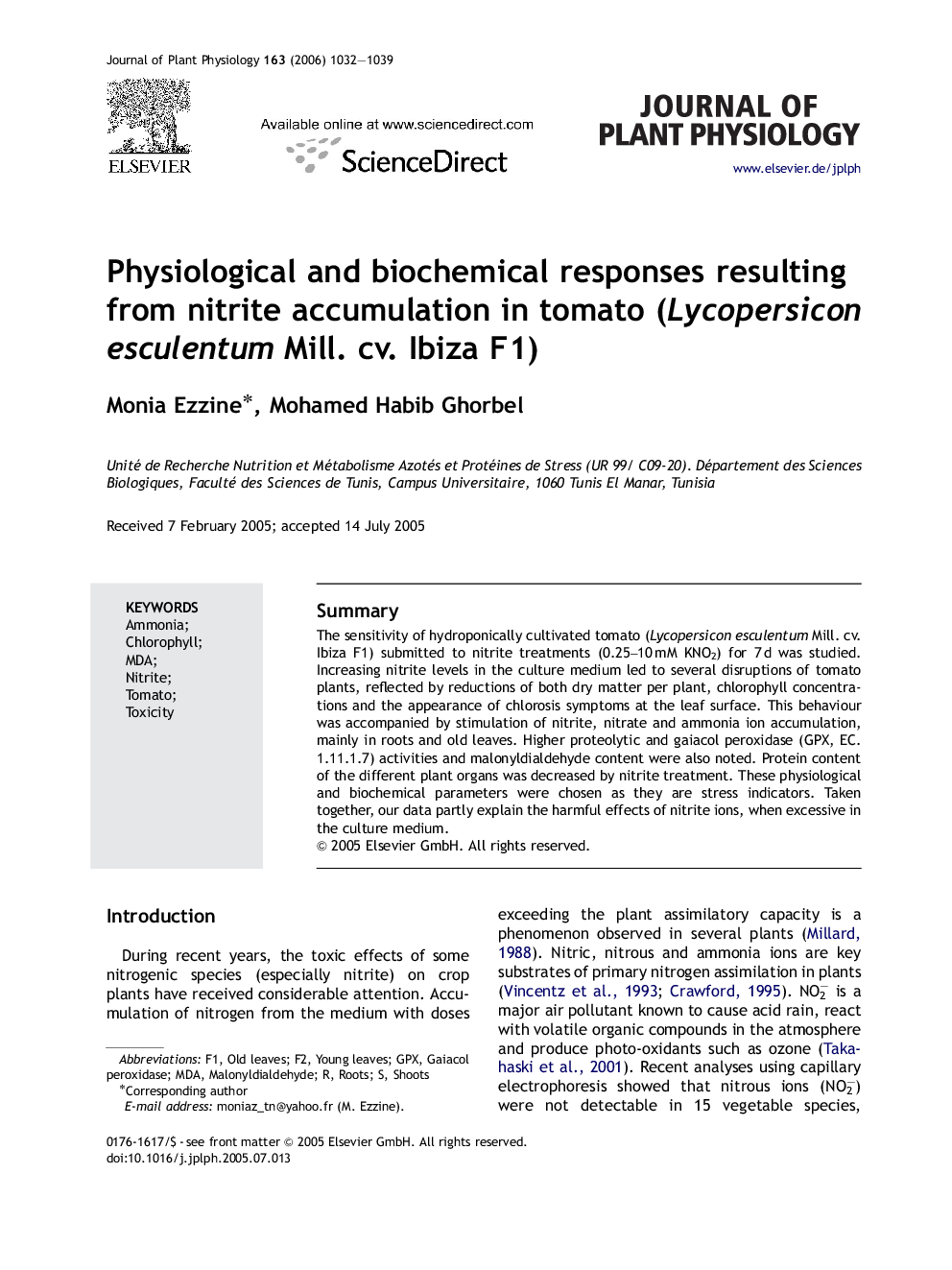| Article ID | Journal | Published Year | Pages | File Type |
|---|---|---|---|---|
| 2057730 | Journal of Plant Physiology | 2006 | 8 Pages |
SummaryThe sensitivity of hydroponically cultivated tomato (Lycopersicon esculentum Mill. cv. Ibiza F1) submitted to nitrite treatments (0.25–10 mM KNO2) for 7 d was studied. Increasing nitrite levels in the culture medium led to several disruptions of tomato plants, reflected by reductions of both dry matter per plant, chlorophyll concentrations and the appearance of chlorosis symptoms at the leaf surface. This behaviour was accompanied by stimulation of nitrite, nitrate and ammonia ion accumulation, mainly in roots and old leaves. Higher proteolytic and gaiacol peroxidase (GPX, EC. 1.11.1.7) activities and malonyldialdehyde content were also noted. Protein content of the different plant organs was decreased by nitrite treatment. These physiological and biochemical parameters were chosen as they are stress indicators. Taken together, our data partly explain the harmful effects of nitrite ions, when excessive in the culture medium.
